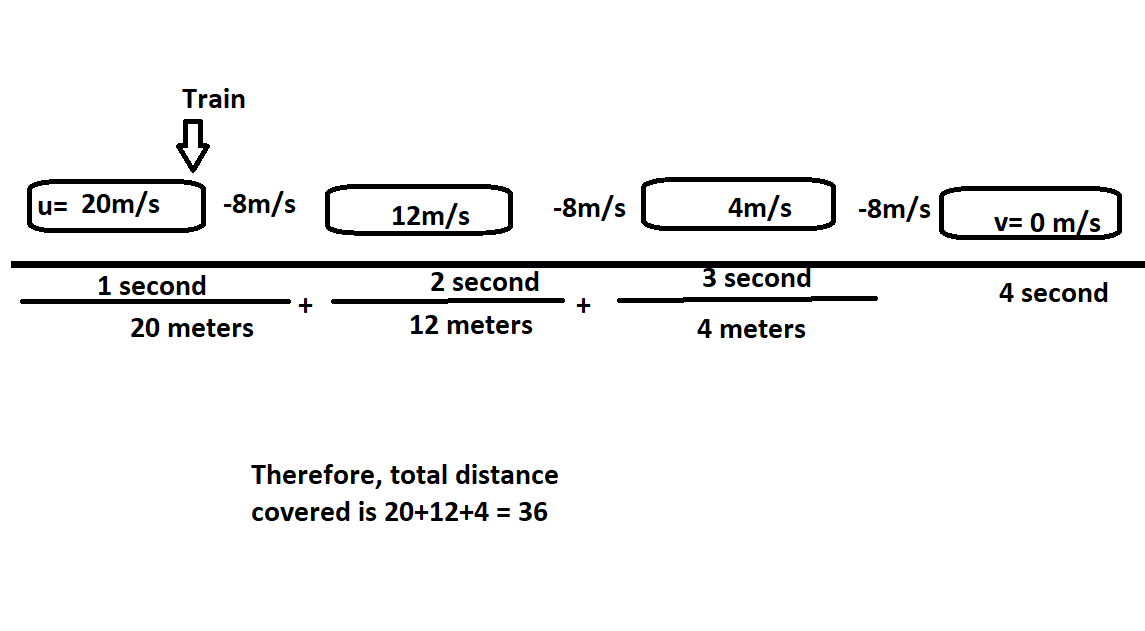I have a question pertaining to the concept of acceleration and it's formula - Both seem to give me different answers.
I was asked:
A train is moving at a velocity of $20\ \mathrm{m/s}$. It hits the breaks and starts slowing down at the rate of $8\ \mathrm{m/s^2}$. How long does it travel before coming to a stop?
$a=-8\ \mathrm{m/s^2}$
$u=20\ \mathrm{m/s}$
$v=0$
$s=?$ (Displacement is asked)
According to the formula of $s= \frac{1} {2} a(v^2-u^2)$$s= \frac{(v^2-u^2)} {2a}$, answer I got was 25 meters.
BUT!
My concept of acceleration explains me this :
According to my intuition of acceleration and velocity, when an object is said to be accelerating at $-8\ \mathrm{m/s^2}$, it means that with every passing second, it's velocity will reduce $8\ \mathrm{m/s}$. So,
At 1st second - Velocity = $20\ \mathrm{m/s}$ - It'll travel 20 meters.
At 2nd second - $v = 20\ \mathrm{m/s}-8\ \mathrm{m/s}=12\ \mathrm{m/s}$ - Train travels 12 meters
At 3rd, it travels 4 meters.
At 4th, it halts.
So total is 20+12+4 = 36 meters. It travels 36 meters before halt.
Where am I going wrong in my conceptual understanding, I really don't understand!

